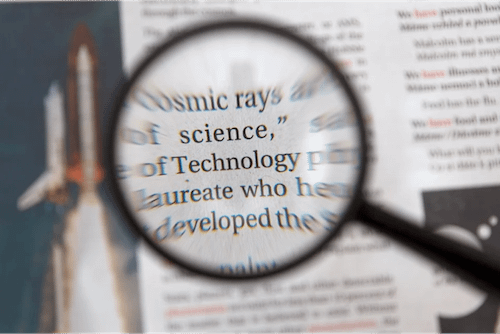We rely on algorithms all the time, and assume that the underlying systems that inform the results they give are objective. But are they?
The Corona pandemic is affecting all of us, however, children may be affected the most. This article deals with what they are struggling with, how they are coping, and what we can do to help them go through this extremely challenging time.
The first-ever presidency of a Black man was often conceived of as the long-awaited end of racial discrimination in the United States. In their wide-eyed optimism, many White Americans trivialized the systemic injustices that Black individuals continue to face and deemed policies in favor of racial equality no longer necessary.
Written text might yield more information than the explicit meaning of words. In fact, the choice of words and the structure of a text can be informative regarding the emotional state and personality of the author. Utilizing this information might be useful in clinical psychology. For example, what would happen if we were able to identify depressed people, just from their language style?
Sometimes we may struggle to keep pace with the speed at which technology is progressing. We may fear the unforeseeable consequences for ourselves and society. In this post, Hannah Meckling discusses causes of internet anxiety and how to transform it into internet awareness.
Is there more to hypnosis than hocus-pocus? Is there room for hyponosis in psychological practice and research? In this blog post Research Master student Annika Sauter debunks common myths about hypnosis and unravels the current scientific knowledge on the topic.
The Jan Brouwer Scriptieprijs is awarded every year by the Koninklijke Hollandsche Maatschappij der Wetenschappen (the Royal Holland Society of Sciences and Humanities) to recognize the best master thesis in the country across eight categories. Last year, two students from the Heymans Institute captured both of the awards that relate to our interests: Chantal D’Amore […]
The COVID-19 crisis has affected all our lives, including our work life and well-being. How can you help yourself, colleagues and friends during these times? How can you avoid making it even worse? In this post, Iustina Armasu gives some evidence-based tips about what to do, and what to avoid.
Bianca, what you are currently doing and how did you get there. I graduated from the University of Groningen in 2019 where I completed both my BSc in Psychology and MSc in clinical psychology. When I finished my master, I had already been living here for more than 5 years so I decided to […]
Honours College student Teresa Jungbluth describes aphantasia: the inability to voluntarily paint mental pictures in one’s own head. She also discusses how this affects one’s life, as well as variations in human experience and the power of visualization.










